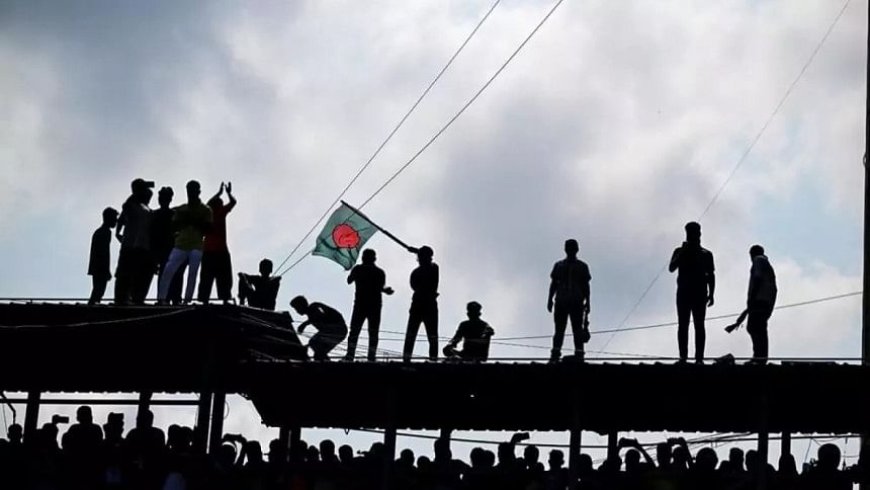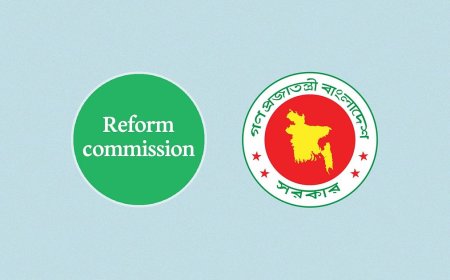Bangladesh Needs Stronger Leadership — How Can We Discover the Right Leaders?
Bangladesh Needs Stronger Leadership — How Can We Discover the Right Leaders?

A Shift in the Air: Rethinking Leadership in Bangladesh
Something subtle but significant changed after the recent Bangladesh Investment Summit. The conversations were bold, the energy unmistakable. But the most powerful moment wasn’t marked by a new policy announcement or foreign investment pledge—it was the emergence of a shared, quiet realization: Bangladesh is ready for a new kind of leadership.
For the first time in recent memory, the buzz in the room wasn’t just about numbers and contracts—it was about people. We witnessed a different calibre of leadership. Individuals who carried themselves with quiet confidence, were educated without pretension, and were globally fluent while staying rooted in their communities. It wasn’t just inspiring—it was a revelation. For many in the room, it became clear: if given the chance, this country could be led by a very different kind of leader.
Let’s call it the Ashik Chowdhury paradigm. Not because it’s about one individual, but because it symbolizes a deeper, national yearning. A hunger for leadership that is ethical, informed, and genuinely representative. It reflects a collective impatience—especially among young people—with the old ways of doing politics. The era of blind party loyalty, hereditary privilege, and performative patriotism is fading. People are now asking sharper, more relevant questions: Who truly speaks for us? Who is equipped to advocate for Bangladesh in Geneva, New York, Brussels, and beyond?
A Nation Evolving, A Politics Standing Still
Bangladesh is not the country it was decades ago. We are now one of South Asia’s fastest-growing economies. We’re building expressways, launching satellites, exporting digital services, and innovating across industries. Yet our political culture feels trapped in a bygone era—still shaped by loyalty contests, generational entitlements, and narrow patronage networks.
This disconnect is glaring. How can a country so forward-looking in business, technology, and culture remain so backward in its politics?
What We Really Need: Fresh, Not Just Young
The call isn’t just for younger leaders—it’s for fresh ones. People who are educated, ethical, globally aware, and deeply connected to the everyday lives of Bangladeshis. We need leaders who can navigate a village meeting in Gaibandha just as comfortably as a high-level forum in Brussels. This standard isn’t a fantasy—we’ve already seen glimpses of it. And once you see it, you can’t go back.
There is no shortage of talent in this country. Bangladesh is rich with lawyers, academics, doctors, economists, climate scientists, and tech entrepreneurs—many already contributing to national development in impactful ways. The private sector welcomes them. So does civil society. International institutions hire them in senior roles. And yet, our political institutions largely shut them out.
Why? Because the system isn’t built to empower talent—it’s built to preserve control. It prioritizes obedience over originality, visibility over vision, and loyalty over learning. It’s a structure that fears change because change threatens power.
Respect the Past, Prepare for the Future
This isn’t about disrespecting the generation that led us through liberation and the early years of state-building. They earned their place in history. But their battles were different. Today’s challenges—climate change, digital governance, economic diversification, urbanization, global diplomacy—require a different kind of leadership.
We need individuals who are intellectually curious, who welcome questions, who see fluency in English not as elitism but as a diplomatic tool. Our parliament must become a chamber of ideas, not a stage for party loyalty. Serious governance requires serious minds.
Education Is Not Elitism
There’s a troubling discomfort in our political culture with the word “education.” As if being educated makes someone disconnected or “foreign.” But politics is one of the most complex professions out there. It demands an understanding of law, economics, international relations, public health, infrastructure, and more. If we expect our doctors and engineers to be credentialed, why not our lawmakers?
Being educated doesn’t mean being elite. It means being equipped. It means being able to understand nuance, solve problems, and engage with the complexities of a fast-changing world. Grassroots connection and intellectual capacity are not mutually exclusive—they’re both essential.
Breaking the Cycle of Entitlement
One of the most corrosive elements in our politics is dynastic succession. Power is often passed down like an inheritance—not earned through service or capability. This not only locks out new talent but also sends a dangerous message to young people: unless you’re born into the right family, you have no place in power.
Of course, political lineage can offer valuable exposure. But when bloodline becomes the sole qualification, it breeds entitlement and mediocrity. Democracy dies not with a bang, but with unearned power.
Rebuilding the Pipeline of Leadership
If political parties are truly serious about representation, they must invest in talent development. That means creating leadership pipelines through universities, civil society, and professional bodies. Offer internships in parliament, mentorship programmes, debates, and policy workshops. Engage young professionals and students—not just as voters, but as future leaders.
The next Prime Minister of Bangladesh should not be born into the role or selected behind closed doors. They should rise through merit, competence, and public trust.
Fixing the System, Not Just the Faces
On paper, Bangladesh has a functioning parliamentary democracy. In practice, it too often resembles a theatre. Parliament should be a place of deliberation, disagreement, and serious lawmaking. Instead, it has become a platform for applause, where dissent is seen as disloyalty and debate is rare.
MPs must be more than party loyalists—they must be public servants. They should be seen reading legislation, visiting schools, consulting with farmers, and listening to constituents. They must be facilitators, researchers, visionaries—not just political mouthpieces.
Even the Speaker’s office must evolve into a nonpartisan institution that ensures every voice is heard. Tools like real-time fact-checking, public scorecards, and MP accountability dashboards should be normalized.
A Cultural Shift: From Rulers to Servants
The final transformation is cultural. Politicians are not our rulers—they are our employees. They serve us. That mindset is already shifting at the grassroots. People are better informed, better connected, and more vocal. They don’t want to be spoken at—they want to be spoken with.
Leaders must now show up year-round, not just during election season. They must walk with the people, speak their language, understand their realities, and make decisions based on empathy and evidence.
The Moment is Now
A political awakening is underway in Bangladesh. It is growing quietly but powerfully—and it cannot be reversed. Any party or politician that ignores it will be left behind. To move forward, we must reimagine how we build, train, and choose our leaders.
We need internal democracy in parties, campaign finance reform, media freedom, and a digital ecosystem that supports—not distorts—democracy. Schools and universities should teach civic leadership, not just voting.
Above all, we must stop celebrating mere survival and start demanding excellence. Because this country deserves more. And its people are ready for it.
What's Your Reaction?






















































































